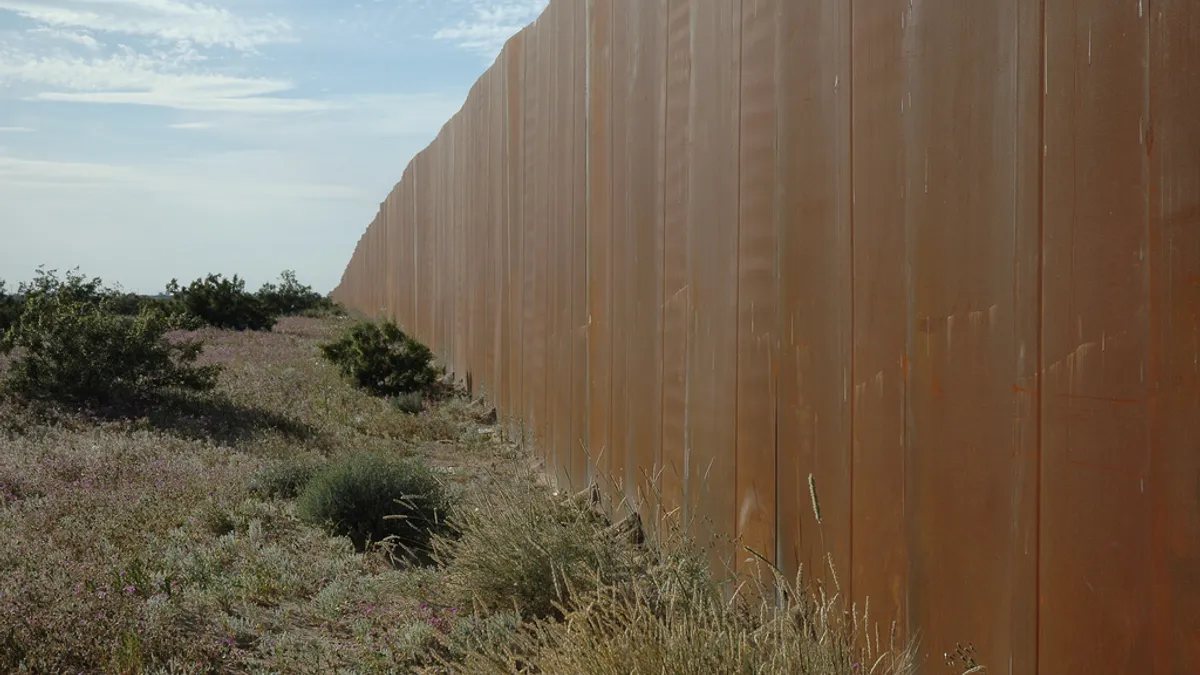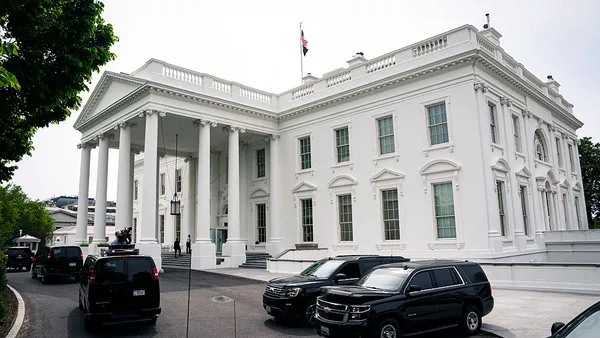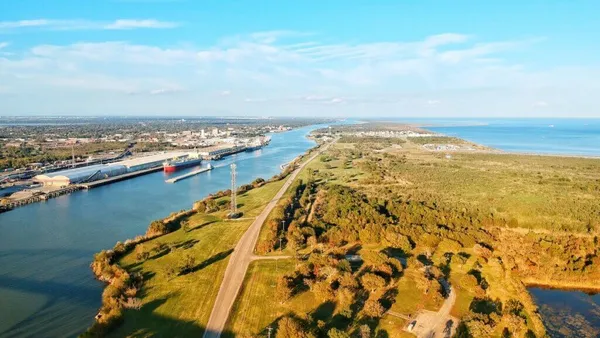Dive Brief:
-
The Pentagon plans on waiving the standard environmental regulations for 175 miles of border wall construction projects paid for with $3.6 billion of military funds, according to Bloomberg Government. Defense Secretary Mark Esper will reportedly do so under the authority given by President Donald Trump's February 2019 declaration of a national emergency at the U.S.-Mexico border.
-
The waiver would likely be used to speed along the 11 border wall and fencing projects that Esper identified in a memo earlier this month, but the first beneficiary of the new policy could be one of the two 31-mile Arizona fencing projects slated for the Barry M. Goldwater Range. The U.S. Air Force and Marine Corps use both project areas for live-fire and bombing exercises but they also include environmentally sensitive areas. The two projects are Yuma Project 10/27, valued at $527 million, and Yuma Project 3, valued at $630 million.
-
The Pentagon's decision is expected to take months, even years, off the wall construction schedules by doing away with the lengthy environmental reviews normally required under the National Environmental Policy Act. The U.S. Navy, Bloomberg reported, has already canceled planned environmental reviews of the Goldwater project.
Dive Insight:
The Pentagon's move is likely to spark a wave of lawsuits, although the Department of Homeland Security, which regularly waives environmental requirements for border wall projects, has come out ahead on its own legal battles in this area. Even though DHS does not comply with these regulations for some projects, agency spokesmen are typically quick to note that they will still be mindful of sensitive areas and will do what they can to protect wildlife, the natural environment and culturally important landmarks and artifacts.
In the meantime, the Pentagon is getting pushback from some lawmakers who represent districts where military construction projects were deferred in order to fund the border wall. At military installations both in the U.S. and abroad, there are 127 new construction and renovation projects that will now have to wait. Sixty-four of those projects are either in the U.S. or in U.S. territories.
Soon after the announcement, Rep. Dutch Ruppersberger, a Democrat from Maryland who called the border wall a $20 billion boondoggle, said the move to spend military funds on these projects was tantamount to stealing because, unlike the border wall, Congress had already appropriated the money for the military projects. Ruppersberger cited three Maryland projects that are now on hold — $16.5 million of road improvements at Fort Meade, home to National Security Agency and U.S. Cyber Command, and $50 million for a hazardous cargo pad and child development center at Joint Base Andrews, which both the Navy and Air Force use.
Work on the border wall, however, continues. Bozeman, Montana-based BFBC LLC, an affiliate of border wall contractor Barnard Construction Co., broke ground earlier this month on a $141.7 million, 5-mile project along the Colorado River near Yuma, Arizona. The project is being funded by military money as well.
The contract, which the Army Corps of Engineers awarded BFBC back in May, will see the design and build of El Centro Project 1 and Yuma Project 1 vehicle and pedestrian barrier replacement.













